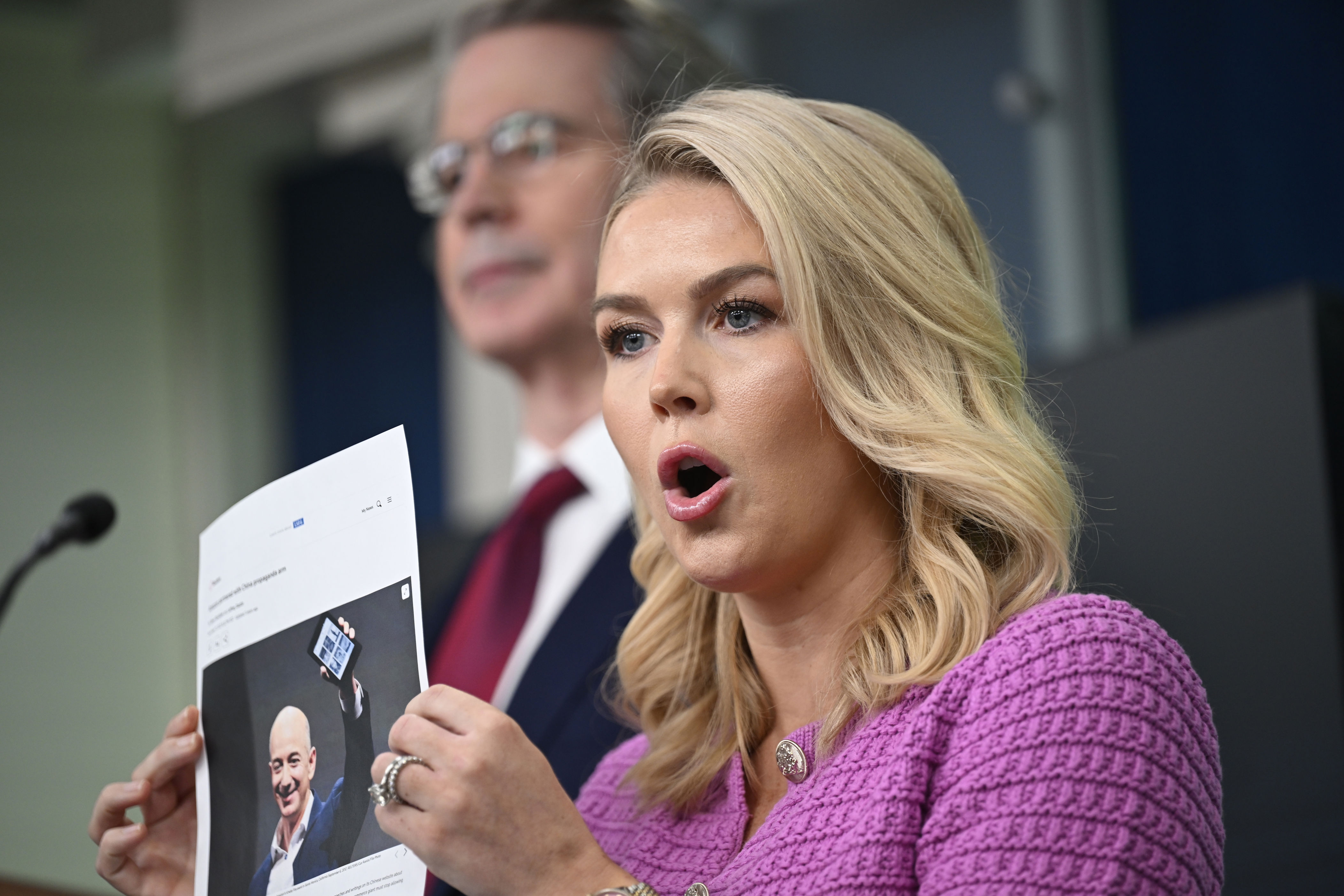
The Trump administration on Wednesday lashed out at Amazon Following reports that the e-commerce behemoth planned to inform its customers about price increases due to President Donald Trump’s tariffs, Amazon quickly clarified. The company stated that this idea was being considered for some parts of their operations but not for their primary platform, and noted that no changes had actually been put into place yet.
The possible consequences of taking such action are clear. Numerous individuals buy various items from Amazon, and they would now receive frequent reminders of exactly how much Trump’s tariffs are impacting their wallets directly. It is uncertain whether it or similar actions will indeed occur, but the Trump administration seems intent on preventing this outcome. (Jeff Bezos, who founded Amazon, also owns The Washington Post.)
However, regarding how much Trump is responsible for the possible economic difficulties coming up, that train seems to have left the station.
One significant negative consequence of Trump’s trade war is that it simplifies linking future economic outcomes directly to a particular policy and an individual. Given that Trump imposed these economically impactful tariffs independently, attributing any downturns to someone like Joe Biden or others would be quite challenging—despite what the administration might claim. efforts to preemptively blame the previous president .
New polls indicate that Americans are closely linking the present economic situation with President Trump — a connection they've seldom made recently.
In an NPR-PBS-Marist College poll Released on Tuesday, 60% of Americans stated that the present economic circumstances are largely due to President Trump's policies, whereas 39% believed he had inherited the situation.
This is not normal.
Even as late as January 2018, during Trump’s first term, Marist revealed that merely 40 percent Of Americans thought that the economic circumstances were largely due to his policies. This percentage has increased by 20 points and we're only three months into President Trump's second term.
More remarkably, throughout Barack Obama's entire presidency, many argued that the economic circumstances he encountered were largely due to inheritance. over a dozen Marist surveys The proportion of people attributing the economic situation primarily to his policies never exceeded the mid-40% range, even as late as 2015—almost seven years after he took office.
During Obama’s presidency at this stage, merely 14 percent believed that the state of the economy was primarily due to his policies, whereas 80 percent thought it was mainly a consequence of what he had taken over.
That isn’t entirely a fair comparison, considering Obama took office during a recession. However, the significant difference lies in how Americans distanced themselves from associating the economy with Obama’s policies even towards the end of his term, which contrasts sharply with their current view of Trump.
They never claimed that the economy was primarily due to Obama’s policies, nor did they mention this at the beginning of Trump’s first term; currently, 60 percent now attribute it mainly to Trump.
This is not the first survey indicating that voters swiftly connect the economy with Trump, whether favorably or unfavorably.
This month, according to a CBS News-Yougov survey, people in the U.S. expressed their views on 54-21 indicating that Trump’s policies were more accountable For the state of the economy, rather than Biden’s. An Economist-YouGov survey indicated A comparable division occurred at 50-32. .
It's crucial to highlight that these surveys do not imply individuals "hold responsible" Trump more for financial difficulties. In fact, they show something different. Siena College survey published in The New York Times Released earlier this week offers a more detailed view on this issue. The survey questioned whether Biden or Trump had generated the "major issues confronting the U.S. economy," revealing an equal divide at 32-32 percent. (The remaining respondents pointed fingers at both leaders, neither one, or chose not to respond.)
However, even the notion that it remains fairly balanced this early into Trump’s second term speaks volumes. The high inflation experienced during Biden’s presidency was a significant issue that likely contributed to the Democrats losing the 2024 election. This inflation persisted, but people appear to be shifting their focus and connecting issues more with Trump.
The data suggest the Pottery Barn rule remains fully applicable to Trump and whatever occurs with the economy: You break it, you bought it.
Post a Comment for "Trump's Dilemma: The Pottery Barn Rule Trap"